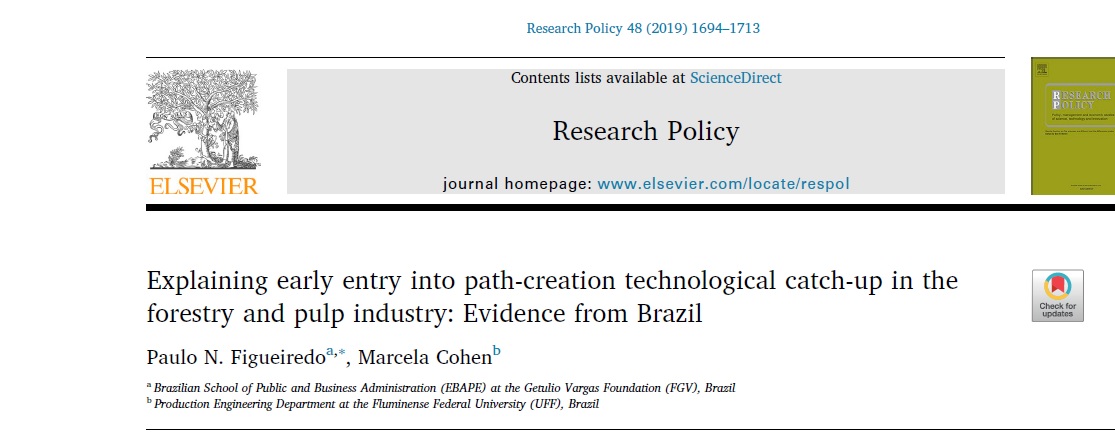
Building on Lee and Malerba’s (2017) framework, we explore how leading firms in Brazil’s forestry and pulp industry responded to windows of opportunity, in learning terms, shaping an early entry into path-creation technological catch-up, shifting that industry into a globally leading position. Drawing on an in-depth inductive study based on 50 years of evidence, a 10-year fieldwork in large firms, and on a novel approach to micro-level external and internal absorptive capacity (AC), as empirically observable external and internal learning mechanisms (LMs) underlying firms’ innovative capability accumulation (technological catch-up), we find that: (1) firms responded to changing windows of opportunity by developing dual AC through the intensity and the manner of use of multiple LMs across the emergence, gradual catch-up, and forging-ahead phases of the pathcreation process; (2) however, there were variations within and across firms in the effectiveness with which they developed their dual AC over these phases, leading to a non-homogenous technological catch-up: while some firms reached a world-leading capability level, others became fast-followers. We contribute to deepening and refining the understanding of technological catch-up through robust empirical insights on how the dynamic interplay between windows of opportunity and variation in the micro-level dual AC development’s effectiveness helps to explain the nature and extent of firms’ technological catch-up. We also provide a basis to further the analysis of technological catch-up and its learning processes, particularly in natural resources-rich industries in resource-rich developing countries.
Figueiredo, P. N. & Cohen, M. (2019). Explaining early entry into path-creation technological catch-up in the forestry and pulp industry: Evidence from Brazil. Research Policy, 48 (7): 1694-1713. DOI: https://doi.org/10.1016/j.respol.2019.03.017